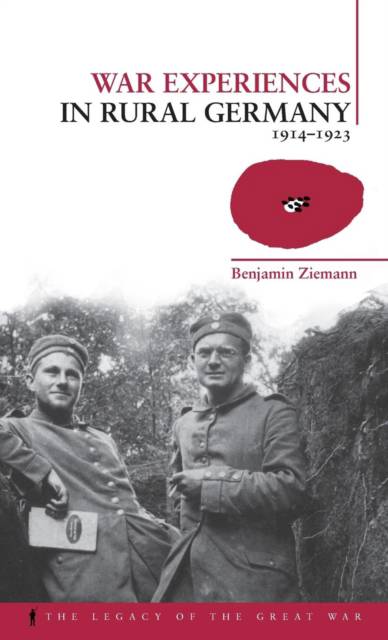
Je cadeautjes zeker op tijd in huis hebben voor de feestdagen? Kom langs in onze winkels en vind het perfecte geschenk!
- Afhalen na 1 uur in een winkel met voorraad
- Gratis thuislevering in België vanaf € 30
- Ruim aanbod met 7 miljoen producten
Je cadeautjes zeker op tijd in huis hebben voor de feestdagen? Kom langs in onze winkels en vind het perfecte geschenk!
- Afhalen na 1 uur in een winkel met voorraad
- Gratis thuislevering in België vanaf € 30
- Ruim aanbod met 7 miljoen producten
Zoeken
Omschrijving
World War I was a uniquely devastating total war that surpassed all previous conflicts for its destruction. But what was the reality like on the ground, for both the soldiers on the front-lines and the women on the homefront?Drawing on intimate firsthand accounts in diaries and letters, War Experiences in Rural Germany examines this question in detail and challenges some strongly held assumptions about the Great War. The author makes the controversial case for the blurring of 'front' and 'homefront'. He shows that through the constant exchange of letters and frequent furloughs, rural soldiers maintained a high degree of contact with their home lives. In addition, the author provides a more nuanced interpretation of the alleged brutalizing effect of the war experience, suggesting that it was by far not as complete as has been previously understood. This pathbreaking book paints a vivid picture of the dynamics of total war on rural communities, from the calling up of troops to the reintegration of veterans into society.
Specificaties
Betrokkenen
- Auteur(s):
- Uitgeverij:
Inhoud
- Aantal bladzijden:
- 320
- Taal:
- Engels
- Reeks:
Eigenschappen
- Productcode (EAN):
- 9781845202446
- Verschijningsdatum:
- 1/12/2006
- Uitvoering:
- Hardcover
- Formaat:
- Genaaid
- Afmetingen:
- 140 mm x 216 mm
- Gewicht:
- 512 g

Alleen bij Standaard Boekhandel
+ 593 punten op je klantenkaart van Standaard Boekhandel
Beoordelingen
We publiceren alleen reviews die voldoen aan de voorwaarden voor reviews. Bekijk onze voorwaarden voor reviews.









